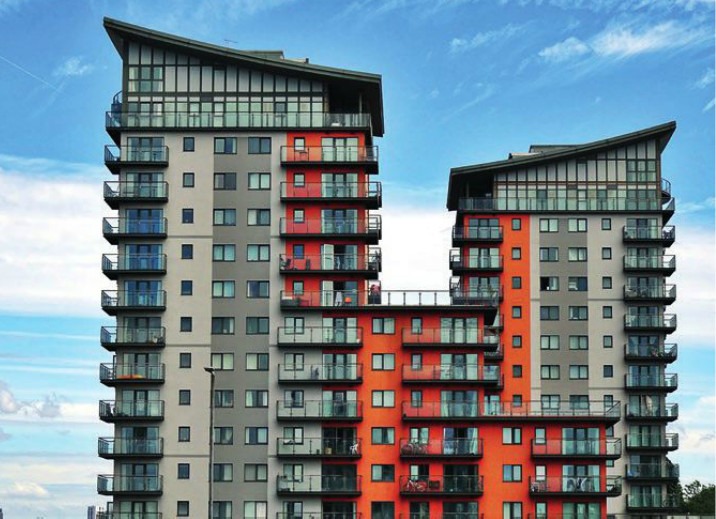Tackling unfair Practices in the Leasehold Market?
 Many of us will have seen news stories recently about leasehold homeowners being unable to sell their homes due to excessive ground rents. As a result, some may be concerned about ever buying a leasehold property. However in and around London if you are a first-time buyer your choice of Property will be limited to a leasehold flat rather than a freehold house. Should that be a cause of concern?
Many of us will have seen news stories recently about leasehold homeowners being unable to sell their homes due to excessive ground rents. As a result, some may be concerned about ever buying a leasehold property. However in and around London if you are a first-time buyer your choice of Property will be limited to a leasehold flat rather than a freehold house. Should that be a cause of concern?
Why have leasehold properties at all?
If you are buying a flat then it should definitely be leasehold and have a modern, lender compliant lease. The reason for that is simple. When you buy a flat you buy just a part of a building. You, therefore, need to make sure that there are legally enforceable obligations on the other flat-owners setting out how they behave as well as legally enforceable obligations on somebody else (the freeholder) to make sure that the building as a whole is kept in repair and insured. Under English Law by far, the safest way of making sure those mutually enforceable obligations are actually binding is to create leases of the flat.
So why are they making the headlines then?
The main focus of controversy seems to be centred on a few areas. Unreasonably high ground rents, excessive or uncapped rent increases, the creation of leasehold houses and large management fees.
As a result, a perception has built up that some freeholders have been milking the leasehold system to make an unwarranted profit from homeowners, especially from owners of newly developed sites.
What is the issue with ground rents?
For a lease to be legally binding there does need to be a rent paid by the Tenant to Landlord. In theory that rent could be a nominal £1.00 sum. However, over the years a number of the larger new build developments have been imposing starting ground rents of several hundred pounds and purchasers of those new flats have had no real power to argue against them.
Most leases will also have a clause that allows for the starting ground rent to be increased after a certain period. The original intention of such clauses was so that over a long-term lease the starting rent would keep up with inflation. However increasingly it has become more of a norm to have more arbitrary rent fixed increases rather than just those which move with inflation. For example, many leases over the past decade would have provided for a rent that doubles every 25 years until the term has reached 100 years when the rent is then capped for the rent of the term.
Where this is now a real issue is for leases that had a high starting rent and which they do not provide for the rent to be capped after 100 years. For example, if you have a 250-year lease with a starting rent of £500.00 per annum doubling every 25th year by the end of the lease term the rent would be £512,000.00 per annum.
You can, therefore, see why, when running the figures for the hypothetical future rent increases, people have started to scrutinise these arrangements much more closely.
And what about management fees?
All leases will allow a freeholder to charge for receipting a notice from a tenant that a sale or mortgage of the lease has taken place and usually that is a fixed sum or an unspecified “reasonable sums”. Leases will also allow fees to be charged for issuing any consents needed under the lease, such as consents for sale or for alterations). The original purpose of such clauses was to make sure the freeholder’s costs were covered so that they were not out of pocket when doing something that is of no benefit to them.
When a flat is sold the Buyer and their lender will also want to see certain items of information about the management of the Block (e.g. the service charge budgets, insurance, details of any planned major works) and that is known as a “Pre-Sale / Assignment Management Pack”. Nothing under the lease obliges a Freeholder to provide that pack and so they are entitled to charge a fee to cover their costs of providing it.
There is, however, no real regulation of what fees can be charged and unless the lease specifies otherwise the freeholder can to a large extent get away with charging whatever they think appropriate knowing that a tenant who is trying to sell will simply pay up to avoid delays in the transaction. A fairly large market has therefore developed where freeholds of large blocks are increasingly owned by an ever decreasing number of large professional freehold companies whose purpose is to ensure a profit is made for their shareholders.
How about leasehold houses?
There is rarely ever a good reason why any house should be sold as a leasehold property rather than being sold outright as a freehold. In 10 years of Conveyancing I have only encountered leasehold houses in a couple of situations and so thankfully in and around London, they are a rare occurrence.
So what can I do?
If you already own a leasehold property then consider exercising your statutory rights to “enfranchise” either individually, by requesting a lease extension, or collectively to buy the freehold with your other tenants. If you extend your lease then automatically the rent will reduce to a £1.00 sum for the rest of the term. Owning the freehold would allow you as a group to vary your leases to change the rent provisions. It would also give you control of the overall management of the block and fees charged.
Do also check with the original developer too as a number of them have introduced voluntary schemes where, for a limit period, they will agree to vary your leases to remove any excessive rent provisions.
If you are looking at buying your first leasehold property then make sure you appoint an experienced solicitor or conveyancer to check the lease documents for you so that alerted at an early stage to any potential issues in the future.
Where does that leave us?
The press has clearly taken up the mantle and, rightly so, seem intent on campaigning for reform. Lenders are also looking to apply their own pressure and many leading lenders now state that they will not agree to lend on new leaseholds if the ground rent provisions proposed by the Developer are excessive.
The Government too finally seem to be alive to the issue. Their 2017 consultation on “Tackling unfair practises in the Leasehold Market” suggest that in the near future they will be looking to introduce legislation to (i) limit the sale of new build leasehold houses (ii) introduce measures to restrict ground rents in newly established leases of houses and flats to a nominal sum and (iii) to make enfranchisement easier for existing leaseholders.
Though not expressly mentioned in the consultation we would hope that the Government also bring in retrospective measures to assist owners who have already purchased a Property to cap rents imposed on those purchases and to introduce greater regulation of fees that can be charged by professional freehold property companies.
A version of this article appeared in the April 2018 edition of Wimbledon Time and Leisure Magazine. Call us on 0345 370 1000 for more details.

